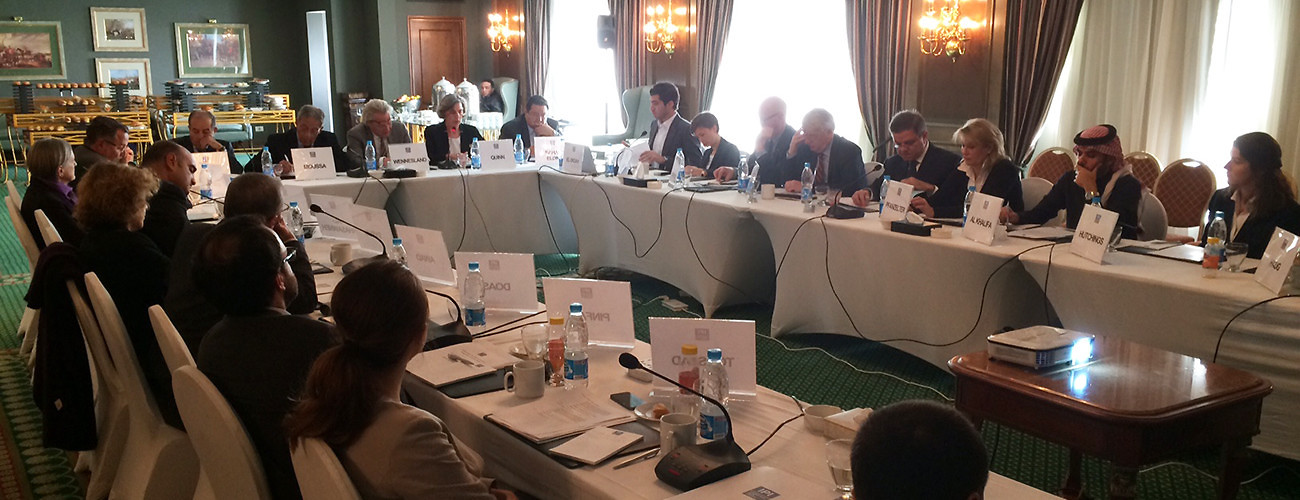On February 2-3, 2015 the International Peace Institute (IPI) held in Cairo, Egypt the concluding seminar in its series of events commemorating the 100th anniversary of World War I. Under the rubric, “Lessons from the Past, Visions for the Future: The Middle East 1914-2014 and Beyond”, the meeting aimed to identify guideposts from history for today’s security and governance challenges, build momentum for regional approaches to these challenges, and consider new ideas to strengthen the peace and security framework for the multilateral system. It was sponsored by the Norwegian Embassy in Cairo.
While the historical discussion was deemed useful, participants argued that much has changed since the transformation of the map of the Middle East that took place following Sykes Picot agreement and the San Remo conference. Despite the fact that these issues have re-entered the policy discourse today, it remains equally crucial to consider the impact of decolonization, the influence of international financial institutions and aid flows, oil, and the equally important repercussion of the Second World War on the region’s political, economic, social and demographic landscape.
The discussions were held under the Chatham House rule. Key challenges/questions facing the region – the failure of legal systems, social protection needs, the role of religion in society, the role of the military, the question of identity, the issue of gender and the Arab world’s relations with Israel and Iran – were discussed. Participants also debated the different roles and influence of national, regional and international actors.
In a dialogue on visions for the future, the group of academics, diplomats and former senior government officials discussed at length the deep disconnect that exists today between the challenges facing the region and existing institutions mandated to deal with them. Topics requiring further regional dialogue were identified, including identity politics and non-state actors, social inclusion and political participation, regional infrastructure and networking. More particularly, education and technology were seen as providing new opportunities for the region’s challenges: for example, the use of social media as a channel of dialogue between the state and its citizens.
Looking ahead, today’s multilayered crises were seen as offering opportunities, while further analysis and in-depth dialogue to overcome conceptual, ideological, socioeconomic, and institutional barriers to regional cooperation were called for.








